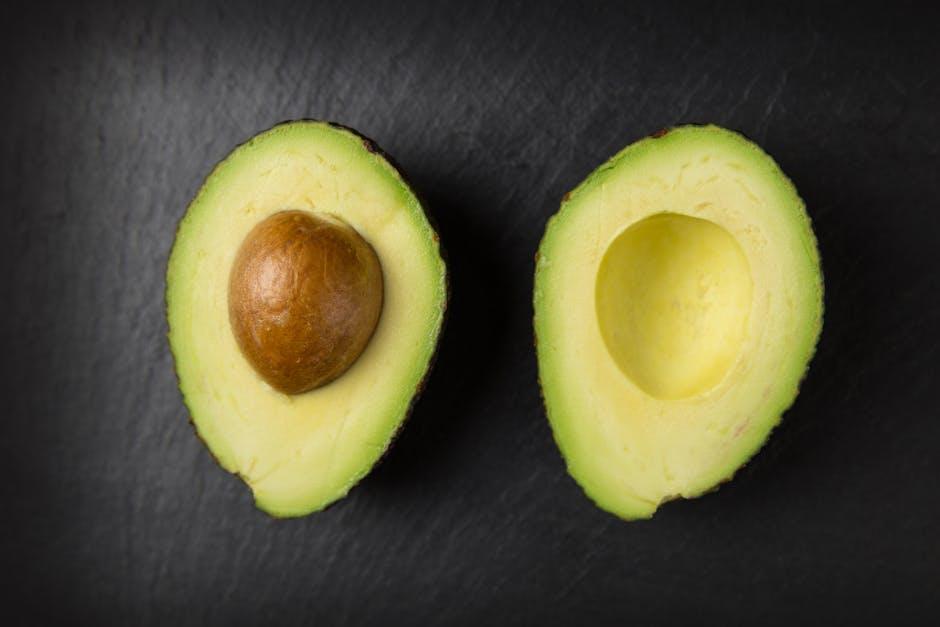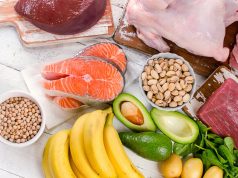In today’s fast-paced world, where convenience often trumps nutrition, ensuring your diet includes enough healthy fats can feel like a daunting task. You might find yourself overwhelmed by conflicting information about what constitutes “healthy” when it comes to fats. Yet, these essential nutrients play a crucial role in maintaining optimal health, supporting brain function, and even helping to manage weight. This article aims to guide you through the maze of dietary fats with empathy and clarity, offering practical tips and insights to help you incorporate these vital components into your daily meals. Whether you’re just starting your journey toward better health or looking to refine your existing habits, we’re here to support you every step of the way.
Understanding the Role of Healthy Fats in Your Diet
Incorporating healthy fats into your diet is crucial for maintaining overall well-being. These essential nutrients play a pivotal role in supporting brain function, reducing inflammation, and promoting heart health. It’s important to differentiate between healthy fats and their less beneficial counterparts. Healthy fats can be found in a variety of sources, including:
- Avocados: Packed with monounsaturated fats, they can help reduce bad cholesterol levels.
- Nuts and Seeds: Almonds, chia seeds, and flaxseeds offer omega-3 fatty acids and are great for snacking or adding to dishes.
- Olive Oil: A staple in the Mediterranean diet, known for its heart-protective properties.
- Fatty Fish: Salmon, mackerel, and sardines are rich in EPA and DHA, crucial for brain health.
To ensure you’re getting enough healthy fats, aim to incorporate these sources into your daily meals. For example, use olive oil for cooking instead of butter, or add a handful of nuts to your breakfast cereal. Here’s a simple comparison to guide your choices:
| Healthy Fat Source | Benefit |
|---|---|
| Avocado | Rich in monounsaturated fats, aids in lowering cholesterol |
| Chia Seeds | High in omega-3s, supports heart health |
| Salmon | Contains DHA and EPA, supports brain function |

Identifying Sources of Beneficial Fats for Everyday Meals
Incorporating beneficial fats into your daily meals doesn’t have to be a daunting task. These healthy fats are crucial for maintaining overall wellness, supporting brain function, and even enhancing your mood. Here are some simple yet effective ways to include them in your diet:
- Avocados: A versatile option, avocados can be mashed onto toast, sliced into salads, or blended into smoothies. Their creamy texture and mild flavor make them a delightful addition to many dishes.
- Nuts and Seeds: Almonds, walnuts, chia seeds, and flaxseeds are excellent sources of healthy fats. Sprinkle them over yogurt, oatmeal, or salads for a satisfying crunch.
- Olive Oil: Rich in monounsaturated fats, olive oil is perfect for drizzling over roasted vegetables or using as a base for homemade salad dressings.
| Food Source | Type of Fat | Benefits |
|---|---|---|
| Avocado | Monounsaturated | Heart health, anti-inflammatory |
| Salmon | Omega-3 | Brain function, reduces risk of heart disease |
| Chia Seeds | Polyunsaturated | Fiber-rich, supports digestion |
By making a conscious effort to include these sources in your meals, you’ll not only enjoy diverse and delicious dishes but also provide your body with the nutrients it needs to thrive. Remember, the goal is balance, so aim for variety and moderation in your choices.

Practical Tips for Incorporating Healthy Fats into Your Routine
- Swap Out Cooking Oils: Replace butter or margarine with healthier options like olive oil or avocado oil. These oils are rich in monounsaturated fats, which are great for heart health. Try using coconut oil for baking as it adds a subtle flavor while being a source of medium-chain triglycerides (MCTs).
- Choose Fat-Rich Snacks: Opt for snacks that naturally contain healthy fats. A handful of nuts like almonds, walnuts, or pistachios can be a satisfying choice. Nut butters, such as almond or peanut butter, spread on whole-grain bread or apple slices, make for a delicious and nutritious snack.
- Incorporate Fatty Fish: Aim to include fatty fish like salmon, mackerel, or sardines in your meals at least twice a week. These fish are high in omega-3 fatty acids, known for their anti-inflammatory properties and benefits for brain health.
| Food Item | Healthy Fat Type | Serving Suggestion |
|---|---|---|
| Avocado | Monounsaturated | Slice into salads or spread on toast |
| Chia Seeds | Omega-3 | Add to smoothies or yogurt |
| Dark Chocolate | Saturated & Monounsaturated | Enjoy a small piece as dessert |
Adding healthy fats to your diet doesn’t have to be overwhelming. Consider simple changes like using ground flaxseed in your morning oatmeal or smoothie for a boost of omega-3s. Remember, moderation is key, and by making these small adjustments, you can enjoy the benefits of healthy fats without compromising on flavor or nutrition.

Overcoming Common Challenges in Maintaining a Balanced Fat Intake
Maintaining a balanced fat intake can be tricky, especially with so much conflicting advice out there. Here are some common challenges and ways to overcome them:
- Lack of Awareness: Many people aren’t aware of the types of fats they consume. Start by educating yourself about the different types of fats: saturated, unsaturated, and trans fats. Knowing which foods contain healthy fats like omega-3 and omega-6 can make a significant difference.
- Misleading Food Labels: Food packaging can often be confusing. Pay close attention to the nutrition facts and ingredients list. Look for terms like “hydrogenated oils,” which indicate the presence of trans fats, and opt for products labeled as containing “healthy fats” like avocados or nuts.
- Balancing Fat Types: It’s easy to consume too much of one type of fat while neglecting others. Aim for a balance by incorporating a variety of fat sources into your diet. For example, use olive oil for cooking, snack on nuts, and include fatty fish like salmon in your meals.
| Food | Healthy Fat Type | Serving Suggestion |
|---|---|---|
| Avocado | Monounsaturated | Half an avocado per day |
| Chia Seeds | Omega-3 | 1 tablespoon in smoothies |
| Almonds | Polyunsaturated | Handful as a snack |
Embrace a mindful approach to eating by listening to your body’s needs and experimenting with different foods. This not only helps in achieving a balanced fat intake but also makes your diet more enjoyable and sustainable in the long run.








































